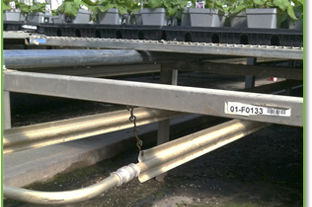Learn About Energy Options
Your agricultural operation may hold literally hundreds of different opportunities to save money on energy or develop the natural energy resources around you. An experienced, professional Energy Auditor can identify these opportunities quickly and reliably, customize the right solutions for you, and calculate just how much benefit your project can provide – through cost savings, fuel, and energy savings, enhanced productivity, and even comfort and wellness.
On the other hand, you probably know your operation better than anyone else. With the right tools and guidance, you can identify a number of opportunities yourself. A good place to start is to educate yourself so that you know what to look for, how to make the right decisions, and when to bring in a specialist.
Educate Yourself
Implementing an energy management plan in your agricultural operation will involve the same basic steps whether you do it yourself or hire a specialist and whether it is a simple, walk-through energy audit or site assessment, or a highly-detailed, comprehensive energy audit or feasibility study.
The more you know about your options, the better off you’ll be down the road, so we suggest you start by exploring some of the guides listed below. These guides provide a sampling of the kinds of energy-saving opportunities you may be able to use in your operations. Keep in mind that your opportunities may be very specific to your site and operations. Also keep in mind that the technologies, assessment tools, and financial opportunities described in these guides are evolving very rapidly.
- The Minnesota Project
-
Improving Farm Energy Efficiency: A Guide to Navigating the Process
Though it’s sometimes specific to Minnesota, this excellent, short guide describes the process of conducting and financing an on-farm efficiency project, with many informative (and sometimes broken) links to online resources.Energy Efficient Farms: Identifying the Proper Improvements
This booklet provides guidance and recommendations for energy efficiency projects common to most farms and for specific types of farm operations, such as dairies and irrigation. - Ag Energy Solutions
-
A Farmer’s Guide to Energy Self Reliance: How to decrease energy consumption and increase profits
This short guide lists ways that you can apply energy conservation, energy efficiency, and renewable energy opportunities to your operation and ranks them by cost – from no cost to investments over $500,000 to grow and process your own fuels.The Farmer’s Handbook for Energy Self-Reliance: A Guide to Using Energy Efficiency, Biomass, and Renewable Energy on the Farm
Like the Farmer’s Guide, the Handbook lists energy conservation, energy efficiency, renewable fuels and energy, and other opportunities by type of operation, with a more detailed analysis of the different technologies.
Evaluate Your Opportunities
Once you have developed a basic understanding of energy-saving opportunities in your operations, you may want to use these online tools to calculate the potential energy savings available in your operations.
- Energy Efficiency Estimator Tools
- Micro-hydro Assessment Tools
